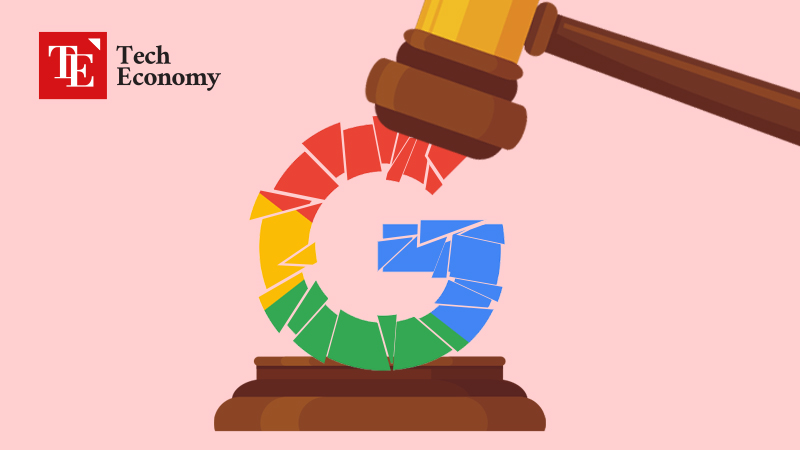Google’s Hard-Earned Chrome Faces Collapse Under U.S. Government Regulations – Is a Tech Security Alarm Being Triggered?
Input
Modified
Breaking the Search Monopoly: Chrome in the Crosshairs Google: “Market Dominance Measurement Is Ambiguous” Ad Monopoly Loss Raises Likelihood of Corporate Breakup

As antitrust enforcement gains momentum in Washington, Google finds itself at the epicenter of a historic legal challenge. The U.S. Department of Justice (DOJ) is no longer limiting itself to fines or corrective measures—it is now advocating for structural change that could dismantle the very architecture of one of the world’s most powerful tech companies. At the heart of this action is Chrome, Google’s widely used browser, now framed not as a tool of convenience but as a vehicle of monopoly.
In a world where digital services are increasingly intertwined with artificial intelligence and national security, the battle over Chrome is more than a courtroom dispute—it may be a turning point for Big Tech.
Chrome in the Crosshairs: A Gateway Under Siege
On April 22, the DOJ launched a pivotal trial to pursue enforcement against Google’s monopolistic conduct in the search engine market. Central to its argument is the assertion that Google’s Chrome browser functions as a “key gateway to search,” structurally anchoring its dominance. The DOJ contends that separating Chrome from Google’s suite of services would open the door for competitors to access valuable search traffic and challenge the tech giant’s overwhelming market share.
The department’s concerns extend to artificial intelligence. DOJ attorney David Dahlquist warned that Google is beginning to replicate its past search strategies in the AI space through its flagship model, Gemini. These developments, he argued, signal an urgent need for preemptive intervention to prevent further consolidation of market power.
Google, however, has pushed back firmly. Its legal team, led by John Schmidtlein, argued that users can freely choose other browsers and search engines, calling the DOJ’s proposed remedies “a wish list for Google’s competitors.” The company insists that its market share is not a product of coercion, but of consumer preference—a point central to its defense against what it characterizes as overregulation.
Unraveling the Ecosystem: A Threat to Google’s Core
Beyond the immediate courtroom debate lies a broader concern: the potential destabilization of Google’s entire digital ecosystem. Chrome is more than just a browser—it is the linchpin of a tightly integrated structure linking Search, YouTube, Gmail, Google Drive, and Google Ads. Through Chrome, Google leverages user data, drives ad revenue, and deploys algorithmic personalization at scale.
The DOJ argues that this integration constitutes unfair self-preferencing. It points to barriers that make it difficult for users to change default search settings, and criticizes how Google’s unified account system effectively bundles search, ads, and shopping, limiting true consumer choice. While Google emphasizes openness and flexibility, the DOJ maintains that these are illusions masking structural manipulation.
In defense of its integrated platform, Google has appealed to national interest. Leanne Mulholland, Vice President of Regulatory Affairs, warned in an April 21 blog post that dismantling Chrome would harm American innovation during a critical period of AI competition with China. She highlighted the rise of Chinese AI firm DeepSeek as evidence that weakening Google’s capabilities could jeopardize the U.S. technological edge. Her message was clear: now is not the time to undermine a global leader in digital infrastructure.

A Breakup on the Horizon: Legal Precedent Builds
The possibility of a court-ordered breakup no longer seems remote. Industry analysts point to a recent ruling as a key inflection point. On April 17, a federal court in Virginia found Google guilty of anticompetitive behavior in the ad server and exchange markets. The court accepted the DOJ’s argument that Google engaged in exclusionary practices by signing large contracts with hardware makers like Samsung to pre-install its AI services—actions interpreted as intentional efforts to shut out competitors.
These findings reinforced the DOJ’s characterization of Google as a monopoly using “comprehensive self-preferencing and market control.” Although Google has announced plans to appeal, the court’s willingness to label the company as a monopolist sets the stage for further intervention.
If structural remedies are enforced, Google may be required to operate its most vital businesses— Search, YouTube, and its advertising network—as separate entities. This would mark an unprecedented reorganization of a modern tech giant. What began as a debate over browser defaults has now evolved into a challenge to Google’s entire profit model, raising fundamental questions about digital competition's future and corporate integration's limits.





















